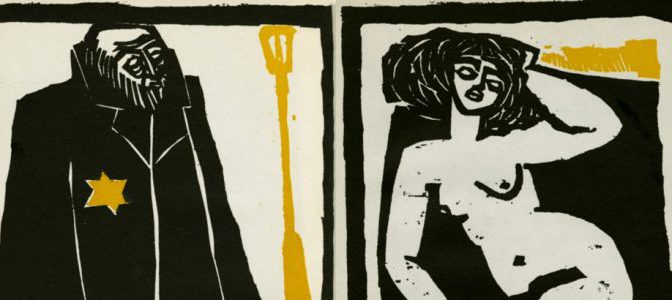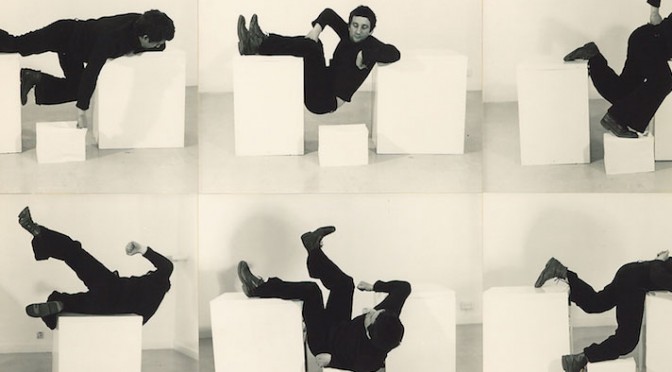Ve čtvrtek 12. ledna 2017 bude knihovna vyjímečně otevřená pouze do 14:30. Děkujeme za pochopení.
Archiv
Holokaust a poválečné období z perspektivy rodiny
Kde: Vila Lanna, V sadech 1, Praha 1
Organizátoři: Eliyana Adler (The Pennsylvania State University) Kateřina Čapková (Ústav pro soudobé dějiny AV ČR),
Ruth Leiserowitz (Deutsches Historisches Institut, Varšava)
Jazyk: anglicky
Více informací na webových stránkách organizátorů zde
Program
Středa 15. března
9:00 – uvítání
9:15 – 11:00 Family and Genocide
Moderuje: Eliyana Adler (Pennsylvania State University)
Dalia Ofer (Hebrew University of Jerusalem): Narrating Families’ Daily Life in East European Ghettos: Concepts and Dilemmas
Michal Unger (Ashkelon Academic College, Israel): Separation and Divorce in the East European Ghettos
Volha Bartash (Hugo Valentin Centre, University of Uppsala): Romani Family in the Holocaust: Ethnographic Field Notes from the Belarusian-Lithuanian Borderland
11:00-11:15 Přestávka na kávu
11:15 -12:30 Family Correspondence
Moderuje: Kateřina Králová (Univerzita Karlova, Praha)
Joachim Schlör (University in Southampton): „I could never forget what they had done to my father“: The Absence and Presence of Holocaust Memory in a Family’s Letter Collection
Rony Alfandary (Bar Ilan University): Family Letters from Thessaloniki – Real and Imaginary Consequences
12:30 – 14:00 Oběd
14:00 – 15:45 Family and Choice
Moderuje: Ruth Leiserowicz (German Historical Institute, Warsaw)
Kiril Feferman (Ariel University): Changing Roles: Flight Decision-Making in the Mixed Families in the Soviet Union, 1941
Alina Bothe (Free University, Berlin): “This was the last time I saw my mother” – Families Responding to the First Mass Deportation in October 1938
Atina Grossmann (Cooper Union, New York City): Negotiating Gender, Family, and Survival Behind the Lines: Perspectives from the Margins of Holocaust History
15:45 – 16:00 Přestávka na kávu
16:00 – 17:45 Children’s Perspectives
Moderuje: Clara Royer (CEFRES, Praha)
Boaz Cohen (Western Galilee College, Akko): Family Survival Strategies as Seen by Survivor Children in their Early Testimonies
Sarah Rosen (Yad Vashem, Jerusalem): The Survival of Deported Families in Transnistrian Ghettos as Reflected in Diaries of the Youth
Joanna Beata Michlic (Bristol University): Grayer Shades of Jewish Identity: Atypical Histories of Child Survivors from Mixed Polish-Jewish Families in the Aftermath of the Holocaust
Čtvrtek 16. března
9:00 – 10:45 Imagined Families
Moderuje: István Pál Ádám (CEFRES, Praha)
Natalia Aleksiun (Touro College, New York City): Uneasy Bonds: On Jews in Hiding and the Making of Surrogate Families
Rita Horvath (Yad Vashem): Hasidic Families under Pressure: An In-Depth Analysis of the Holocaust Testimonies Collected by Yaffa Eliach
Viktória Bányai (Institute for Minority Studies, Hungarian Academy of Sciences): The Impact of the Joint’s Assistance Strategy on the Lives of Jewish Families in Hungary, 1945-49
10:45 – 11:00 Přestávka na kávu
11:00 – 12: 45 Postwar Dilemmas
Moderuje: Stephan Stach (Ústav pro soudobé dějiny, Praha)
Laura Hobson Faure (Université Sorbonne Nouvelle): Siblings in the Holocaust and its Aftermath: Rethinking the “Holocaust Orphan” in France and the United States
Marcos Silber (University of Haifa): Migrations, Gender and Family: Bottom-Up Perspectives on Migrations and Nation Building in 1950s’ Poland and Israel
Kamil Kijek (Wrocław University): Jewish Family Confronting the Holocaust Aftermath and Demise of Modernism: The Case of Polish Lower Silesia, 1945-1957
12:45 – 14:00 Oběd
14:00 – 15:45 Rebuilding the Family
Moderuje: Kateřina Čapková (Ústav pro soudobé dějiny, Praha)
Robin Judd (Ohio State University): “Experiencing Family and Home”: Jewish Military Brides, Allied Soldier Husbands, and the Centrality of Kinship, 1944-1950
Anja Reuss, nezávislá historička: “Return to Normality”—The Relevance of Motherhood and Family for Sinti and Roma Survivors in the Aftermath of World War II
Sarah Wobick-Segev, University of Western Ontario: Looking for a Nice Jewish Girl . . .: Personal Ads and the Creation of Jewish Families in Germany during and after the Shoah, 1938-1953
15:45 – 16:15 Přestávka na kávu
16:15 – 17:45 Závěrečná diskuse
Židé a populární kultura v Československu v době 60. let
Přednáška Ilany Miller (Chicagská univerzita) v rámci semináře Soudobé dějiny Židů, který pořádá Ústav pro soudobé dějiny AV ČR a CEFRES ve spolupráci s Židovským muzeem.
Kde: knihovna CEFRESu, Na Florenci 1420/3, Praha 1
Kdy: 17:00 – 19:00
Jazyk: anglicky
Abstrakt v angličtině
Was there such a thing as “Jewish popular culture” under communism? In this presentation, I use data collected from the publishing and film industries to examine moments of increased popularity in Jewish themes in Czechoslovak culture. While the rapid rise in interest in Jewish themes in post-communist culture has been written about extensively, few have taken seriously the possibility of widespread interest in Jewish themes under communism. By examining trends in mainstream literary and cinematic culture, I show that the 1960’s boom in interest in Jewish themes rivalled the post-communist period. While the post-communist period was heavily influenced by foreign and external cultural trends, communist era literature and films were far more domestic—both in their creation as well as in their themes and focus. Using distribution and publication data, reviews, movie posters and illustrations, this presentation explores the characteristics and qualities of Jewish popular culture under communism, particularly the role that Jewish themes played during the era of communist reform.
Ilustrace Zdeňka Chotěnovského v knize Hana Bělohradská, Bez krásy, bez límce (1964).
Koncept ideologie
Třetí setkání epistemologického semináře v letním semestru pořádáného CEFRESem a IMS FSV UK pod vedením Ayse Yuva.
Kde: knihovna CEFRESu – Na Florenci 3, 110 00 Praha 1
Kdy: 15:30 – 17:00
Jazyk: anglicky
Texty
- K. Marx/F. Engels, The German Ideology, 3 krátké texty:
- Text 1: “Social being and social consciousness” (§4) – zde
- Text 2: “History: fundamental conditions” – zde
- Text 3: “Ruling class and ruling ideas” – zde
2. K. Marx, “Preface to a contribution to the critique of political economy” (krátký text) – zde
3. L. Althusser, Ideology and ideological state apparatuses (především od kapitoly “Infrastructure and Superstructure” do konce) – zde
Hendikep: užitečná kategorie pro historickou analýzu?
První setkání epistemologického semináře v letním semestru pořádáného CEFRESem a IMS FSV UK pod vedením Filipa Herzy.
Jazyk: anglicky
Texty:
1) Garland-Thomson, Rosemarie. 2002. “Integrating Disability, Transforming Feminist Theory”. Nwsa Journal 14 (3): 1-32.
2) Scott, Joan W. 1986. “Gender: A Useful Category Of Historical Analysis”. The American Historical Review 91 (5): 1053-1075.
Koncept pohlaví
Druhé setkání epistemologického semináře v letním semestru pořádáného CEFRESem a IMS FSV UK pod vedením Magdaleny Cabaj.
Jazyk: anglicky
Texty k četbě:
- Judith Butler, “Doing Justice to Someone: Sex Reassignment and Allegories of Transsexuality”, v idem, Undoing Gender, 2004, str. 57- 74.
- Alice Domurat Dreger, “Ambiguous Sex: Or Ambivalent Medicine? Ethical Issues in the Treatment of Intersexuality”, The Hastings Center Report, Vol. 28, č. 3, květen-červen 1998, str. 24-35.




